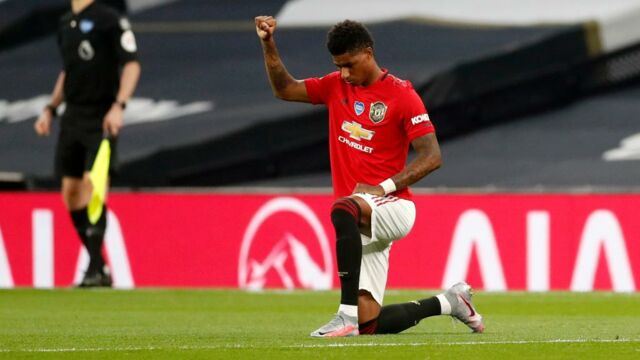A study on racism in Serie A
A few days ago, Eduardo Camavinga, praised by Karim Benzema after his first game with Real Madrid, was the victim of racism by a Spanish journalist on live television. It's far from being the first time that players have been victims of racist insults in recent years.
Discover our latest podcast
This year, British players have been targeted with racist abuse time and time again, especially during the Euro 2020 when Marcus Rashford, Jadon Sancho and Bukayo Saka were all abused online for missing penalties.
A YouGov survey shows that 70 per cent of football fans across England believe there is a serious problem with racism in professional football in the country.
Italian economists wanted to take a closer look at this shameful behaviour. Above all, they wanted to analyse the sporting consequences for players who are victims of racism. The economists came to the conclusion that racism does have an impact on the performance of the players targeted.
Players who are victims of racism perform less well
Three economists, Mauro Caselli, Paolo Falco and Gianpiero Mattera, compared the performances (based in particular on the number of passes, dribbles, assists, goals) of the control groups with a public and without a public during the closed season in Serie A (from the end of June to the end of July 2020). These are broadly the same.
However, for black players, the picture is quite different. Their performances improve significantly when the stands are empty. And they are even better when the player belongs to a club that was affected by racist incidents during the first part of the same season (until March 2020 and the end of Serie A).
The economists state that tests were conducted to exclude 'competing hypotheses, including simple 'choking effects' of large crowds, lack of experience and physical differences that may have generated an advantage for some players after a prolonged break in the league.'
More broadly, the study wanted to analyse the impact of racism in society on the outcomes of those affected, beyond football. Let's hope we don't see any more of the kind of behaviour that England has experienced recently.















